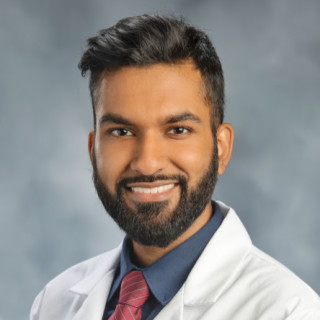In recent years, social media has altered more than just the digital landscape — it has revolutionized everything from politics and economics, to health care and education. Whether it’s artists and models pushing promotions, or medical practices soliciting potential patients, social media has introduced new ways to advertise and communicate. It has particularly proven a great tool for physicians, useful in disseminating information — and sometimes unfortunately, disinformation — to the public, especially during the pandemic. Media-heavy specialties with attractive before and after photos, like dermatology and plastic surgery, thrive on using social media to advertise their results. There has also been a rise in the MD personality: lifestyle accounts that follow physicians in their daily lives with a focus on fashion, diet, exercise, or other aspects of the doctor’s life that may interest followers. Social media has also proven to be a great place for interfacing with other physicians, to share diagnostic challenges, photos, surgical videos, and more.
However, the rise of social media has also led to questions about how doctors should conduct their personal lives. Social media in its earlier forms provided a way for people to connect with family and friends, post photos of significant events, and voice opinions on current affairs. As social media has evolved and become more public, we have started looking at individual accounts with more scrutiny. This raises the question: Outside the office, how much policing of physicians’ conduct is warranted? Now that we have access to more information to evaluate candidates in our profession, what constitutes a fair judgment? My medical school orientation focused on encouraging students to keep their public social media accounts free from private medical information, identifiable patient anecdotes, and photos from the anatomy lab, as well as posts that could be interpreted as unprofessional. In my cohort, students either retreated under an alias or purged their accounts of drunken photos taken during nights out in high school or college. Given recent events highlighting how the medical community performs in the social media spotlight, such measures may be wise.
For example, a video of a young woman berating and assaulting an Uber driver in an alcohol-driven altercation in Miami went viral. The woman was identified as a neurology resident at a local hospital and put on administrative leave. In the court of public opinion, she found little sympathy, with some stating they would not trust her with medical care. She was essentially “canceled” for her conduct and suspended from her residency. Setting aside valid criticisms of her behavior, the viral video is a clear example of how actions displayed and shared on social media can have professional consequences, suggesting that it is reasonable to recommend doctors be conscientious of their online presence.
“Cancel culture” is loosely defined as a modern form of ostracism in which an individual is expelled from social or professional circles as a result of their actions. It has been the subject of much debate. Critics argue that it encourages disproportionate reactions to people’s mistakes, especially if those individuals are disliked or unpopular. In some cases, it can be used to enforce “political correctness” and stifle constructive conversation. On the other hand, cancel culture also reinforces the concept of personal accountability. With the rise of social media, digital evidence is easily documented and disclosed, allowing people to be held accountable for their actions more so than in the past. Given that accountability is paramount in medicine to maintain the public’s trust in doctors, perhaps this paradigm shift has some advantages.
The importance of accountability in medicine becomes clear when considering more extreme examples. Dr. Christopher Dunstch, also known as “Dr. Death,” the spine surgeon responsible for mutilating multiple patients across different hospital systems, Dr. Farid Fata, imprisoned for prescribing lethal chemotherapy to healthy patients, and Dr. Larry Nassar, infamous for his assault of numerous college athletes, were each rightfully held accountable for their actions. Indeed, there is consensus within the medical community that such heinous individuals should be brought to justice, and the patients who fell victim to them be recompensed for their harms. As a profession, we do not tolerate even a single “bad apple”; thus, the benchmark for “good standing” is, and should remain, quite high for clinicians.
As cancel culture has begun to reshape our view of professionals, I see the emphasis on accountability as a strength, a signal that the health care community will not tolerate transgressions that compromise the doctor-patient relationship. That said, balance is important. Cancel culture can quickly spiral into doxing, the unacceptable practice of publishing private information on public domains as a form of harassment, revenge, or punishment. Additionally, cancel culture can be dangerous when individuals are attacked for menial actions/statements/opinions that are not malicious, and are well within their rights.
So, when social media allows for the display of lifestyle choices that are not directly related to patient care, do health care professionals deserve to be put on digital trial? How much of a physician’s personal life is fair game for public and professional scrutiny? In a recently published and subsequently retracted study in the Journal of Vascular Surgery, the authors searched the social media profiles of vascular surgeons looking for evidence of activity they categorized as “clearly unprofessional.” Obvious alcohol intoxication, uncensored profanity, offensive statements about colleagues/work/patients, tendentious political opinions, inappropriate/offensive attire, and controversial social/religious comments were enumerated examples of unprofessional conduct. The study was met with swift backlash from the medical community, which criticized the authors for the reductive and misogynistic nature of the article. Though it was lost in the minutiae of the paper, I presume that the authors’ intention was to demonstrate how easily imagery detrimental to one’s career and reputation can be found with a simple search of a doctor’s social media accounts.
Undoubtedly, social media is a great tool for doctors when used appropriately. But in the modern world, actions documented on social media are available for public scrutiny, which can lead to professional consequences, some much more deserved than others. The question remains as to the extent to which a physician is responsible for ensuring their online presence is in sync with the desired image of a trusted professional equipped to provide quality health care. Must doctors remove themselves from social media entirely for fear that a misstep or misinterpretation will lead them to fall victim to cancel culture? Or, on the other hand, are social media’s ills counteracted by the ability we gain to uphold standards, identify dangerous behavior early, and reinforce accountability, possibly preventing the next Dr. Death? Ideally, we can work together as a community to find a reasonable middle ground.
What rules (unwritten or otherwise) do you follow when curating your online presence? Share your thoughts in the comments.
Dr. Bakhsh is dedicated to ending the healthcare disparities faced by our most vulnerable populations. His focus includes the interplay between race, socioeconomics, culture, environment, and public health. He was born and raised in Chicago where he earned bachelor's degrees in statistics and environmental sciences from Northwestern University. He completed medical school at Rush University and ophthalmology training at Beaumont and will be starting Vitreoretinal Surgery fellowship at Indiana University. He is a 2020–2021 Doximity Op-Med Fellow.







